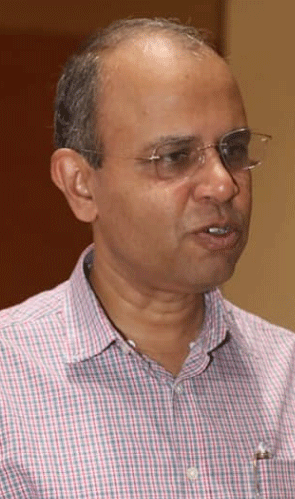Bhubaneswar : Senior Mandarin and Principal Secretary, Panchayati Raj and Drinking Water, Ashok Kumar Meena will now onwards look after the Aspirational District Program.
State Government has appointed Mr.Meena as State Nodal Officer for smooth implementation of the Program.
Along with his own responsibility, Mr.Meena will now look into the development programs in the Aspirational Districts of Odisha.
He will play a major role in coordination between the NITI Aayog and the State Government and the concerned District Administrations.
He will interact with the Team of Officers of NITI Aayog, Central Prabhari Officers as well as Secretary Level Officers of the 10 Aspirational Districts of the State, a senior official said.
The State Nodal Officer will report to the Development Commissioner about the District Plan and feedback received from the Central Prabhari Officers and Secretary Level Officers, senior officials said.
The Aspirational District Program Section of Planning & Convergence Department will provide Secretarial support to the State Nodal Officer.
As many as 10 Districts of Odisha are covered under the Program. The Districts are—Nuapada, Rayagada, Nabarangpur, Kandhamal, Kalahandi, Malkangiri, Balangir, Dhenkanal, Koraput and Gajapati.
The State Government has appointed senior Officers as In-Charge of the 10 Districts while Union Government has also appointed Central Prabhari Officers for the Aspirational Districts who regularly visit the districts and present their reports to the NITI Aayog. The nominated Secretaries in the State coordinate with them to ensure that the backward districts get a boost on all fronts.
It may be mentioned that the Centre had launched the ‘Transformation of Aspirational Districts’ initiative in January 2018 to improve India’s ranking under Human Development Index, raising the living standards of its citizens and ensuring inclusive growth of all.
A total of 117 Aspirational Districts across India have been identified by NITI Aayog based upon composite indicators from health & nutrition, education, agriculture & water resources, financial inclusion and skill development and basic infrastructure.


